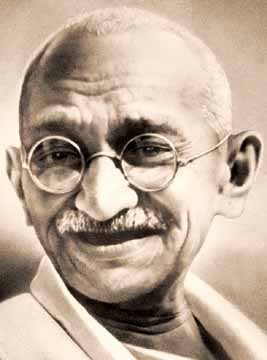
As India celebrates the birth anniversary of Mahatma Gandhi, it is an opportune moment to reflect upon his profound philosophy of non-violence and kindness. Mahatma Gandhi, the Father of the Nation, remains an iconic figure whose life and teachings continue to inspire people around the world. His unwavering commitment to non-violence and his embodiment of kindness as a way of life have left an indelible mark on history and continue to be relevant in our tumultuous times.
Non-Violence: The Core of Gandhi’s Philosophy:
Mahatma Gandhi’s idea of non-violence, or “Ahimsa” in Sanskrit, was the cornerstone of his philosophy. For Gandhi, non-violence was not merely the absence of physical violence but a comprehensive principle that encompassed the mind, body, and soul. He believed that true non-violence required a deep understanding of the interconnectedness of all life and a commitment to avoid causing harm to any living being.
Gandhi’s non-violent approach to social and political change was exemplified in his campaigns and movements. The Salt March, the Quit India Movement, and the fight for India’s independence were all rooted in the principles of non-violence. He showed the world that it was possible to achieve profound social and political transformations through peaceful means.
Kindness as a Virtue:
Kindness, according to Gandhi, was not a mere sentiment but a powerful virtue that could transform individuals and society. He believed that true kindness was not limited to occasional acts of charity but should be a way of life. Gandhi emphasized the importance of empathizing with the suffering of others, regardless of their background or beliefs.
Gandhi’s kindness was not limited to humans alone; he extended it to all living beings. He advocated for vegetarianism and promoted respect for animals as part of his larger philosophy of non-violence. His commitment to simple living and minimal consumption also reflected his kindness towards the environment.
The Connection between Non-Violence and Kindness:
Mahatma Gandhi saw a profound connection between non-violence and kindness. He believed that nonviolence could only be practised if one had a kind and compassionate heart. Kindness, in his view, was the fertile ground from which non-violence could flourish. Gandhi’s insistence on love and empathy as the driving forces behind non-violent action demonstrated the inseparable link between the two ideals.
Legacy and Relevance Today:
Mahatma Gandhi’s legacy of non-violence and kindness continues to resonate globally. In a world grappling with conflicts, inequalities, and environmental crises, his teachings offer a path towards a more harmonious and compassionate existence. His belief in dialogue, tolerance, and understanding as tools for resolving differences serves as a beacon of hope in today’s divisive times.
Conclusion:
As India celebrates the birth anniversary of Mahatma Gandhi, it is an occasion to not only remember his life but also to embrace his profound ideas of non-violence and kindness. His teachings remain a timeless guide for addressing the challenges of our era, reminding us that true change begins with the transformation of our hearts and our commitment to treating all living beings with love and compassion. Mahatma Gandhi’s enduring legacy is a testament to the enduring power of non-violence and kindness in shaping a better world for all.





